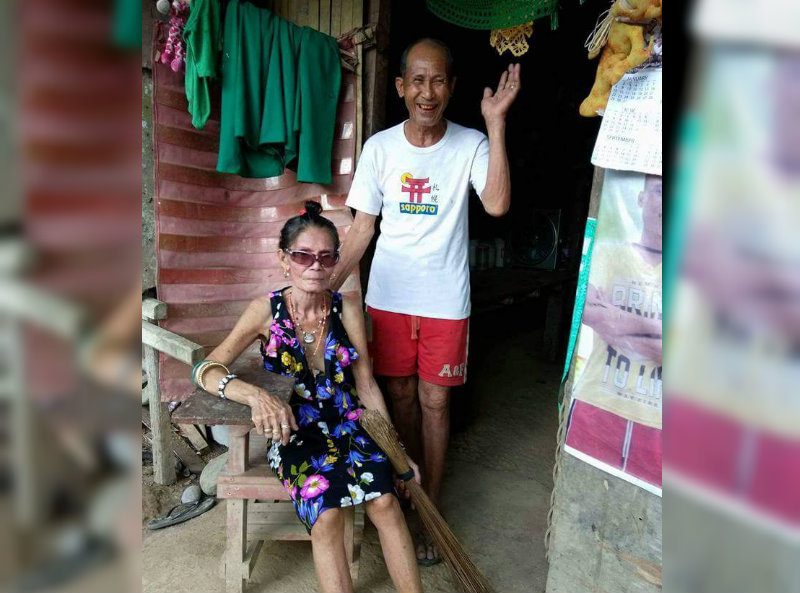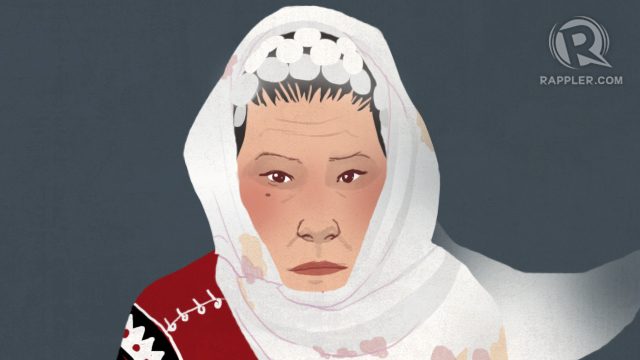SUMMARY
This is AI generated summarization, which may have errors. For context, always refer to the full article.

ILOILO, Philippines – Rosita Caballero, one of the last known kept maidens or binukot in the Philippines, has died.
Belonging to the Panay Bukidnon indigenous community, Caballero died last July 23 at the age of 73. She also served as the tribe elder at Barangay Garangan from the municipality of Calinog in the province of Iloilo,
Known for their rich culture and abundant living traditions, Panay Bukidnon is a recognized indigenous community in the island of Panay.
“At first, she got a stomachache after eating pineapple fruit, and so, we brought her to Calinog for check-up. The next morning, she had a hilot from a known manghihilot. The next day, she became yellowish, so her children brought her to the hospital,” shared her grand daughter, Cyrhence Caballero-Santiago
According to Santiago, the municipal hospital referred them to seek further tests at the Western Hospital in Iloilo. In iloilo, tests revealed that she needed to undergo an operation due to her kidney stones.
“Later they found out in the ultrasound result that she has a gallbladder rupture. They did not push through with the operation because of the bacteria in her body. In addition, they found out that she also has hepatitis,” Santiago added.
Nanay Rosita is a binukot. It means a kept maiden in English. Binukot refers to a tradition of the families belonging to Panay Bukidnon where parents choose the most beautiful among the children who be kept from the public eye from the day of birth until she becomes a young woman or maiden.

Story of a binukot
Never to be exposed to the sun nor seen by other people, a binukot is not allowed to get out of the house.
In the community, she is treated like a princess where she is being bathed, combed and served by her family. True to her princess status, the binukot receives only the best of things and is taught the tribe’s traditions like memorizing Sugidanon, a long verbal narrative which contains the epics of Panay through chanting.
A binukot also learns and masters folk dances like Binanog.
When she reaches the right age, she is allowed to be seen in public to lead the tribal ceremony and to entertain her fellow tribesmen with the Binanog dance.
Her princess-like benefits do not end once she is seen in public. Whenever she leaves her home, she is carried on a hammock to make sure her feet do not touch the ground.
Preserving the culture

The‘binanog dance’ closely imitates the movements of the hawk or ‘banog’. In this dance, the woman is in charge. The man observes and matches the steps of the woman, his movement dependent on her every move and shift.
The binukot’s hand for marriage goes to the man who offers the biggest dowry. Even then, tradition demands that the man cannot see her until after marriage. It doesn’t matter where the man came from as long as he is able to bid the highest price.
Experts said a binukot is usually frail, who knows nothing about doing chores or the practical ways of living.
According to Nancy Deocades, who made an anthropological study on the Sulodnon/Bukidnon tribe, one binukot even said that her feet bled when she first tried to walk on the ground.
While these kept maidens are often physically weak, they serve an important function in keeping their traditions alive. Through them, they preserve the ages-long epics and legends of their tribes. The binukot is also the embodiment of the culture and tradition their ancestors have worked so hard to practice and perpetuate for decades.
Panay Bukidnon rely on agriculture as their main source of livelihood. They plant and grow root crops and they also attend to domestic animals in order to survive.
With attaining education becoming their priority over grooming their daughters for marriage, only a few families of the Panay Bukidnon still continue the tradition of choosing a binukot.
Caballero’s death came just a few weeks before the country celebrates the National Indigenous People’s Day on August 9. – Rappler.com
Gem Cavalida is a Rappler Mover from Iloilo
Add a comment
How does this make you feel?
There are no comments yet. Add your comment to start the conversation.